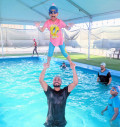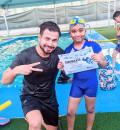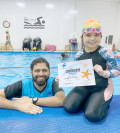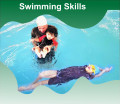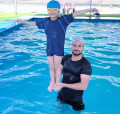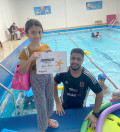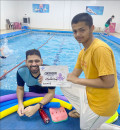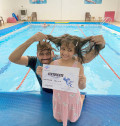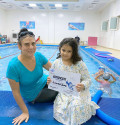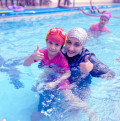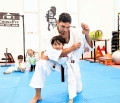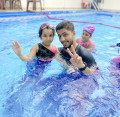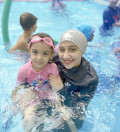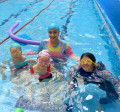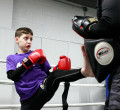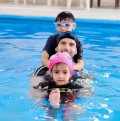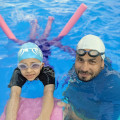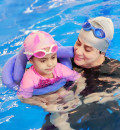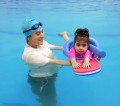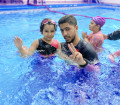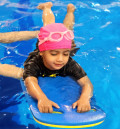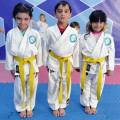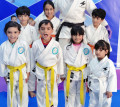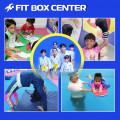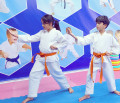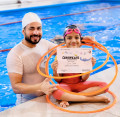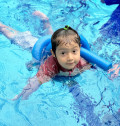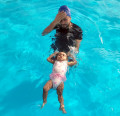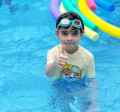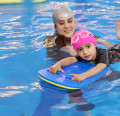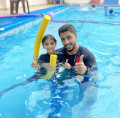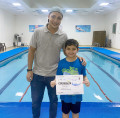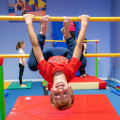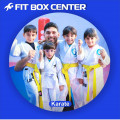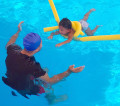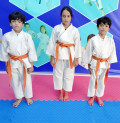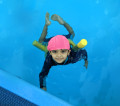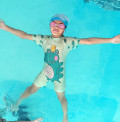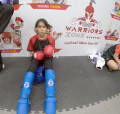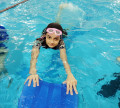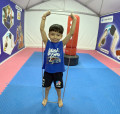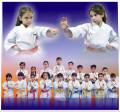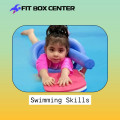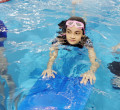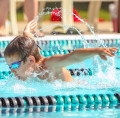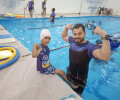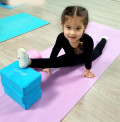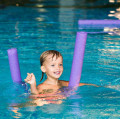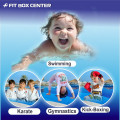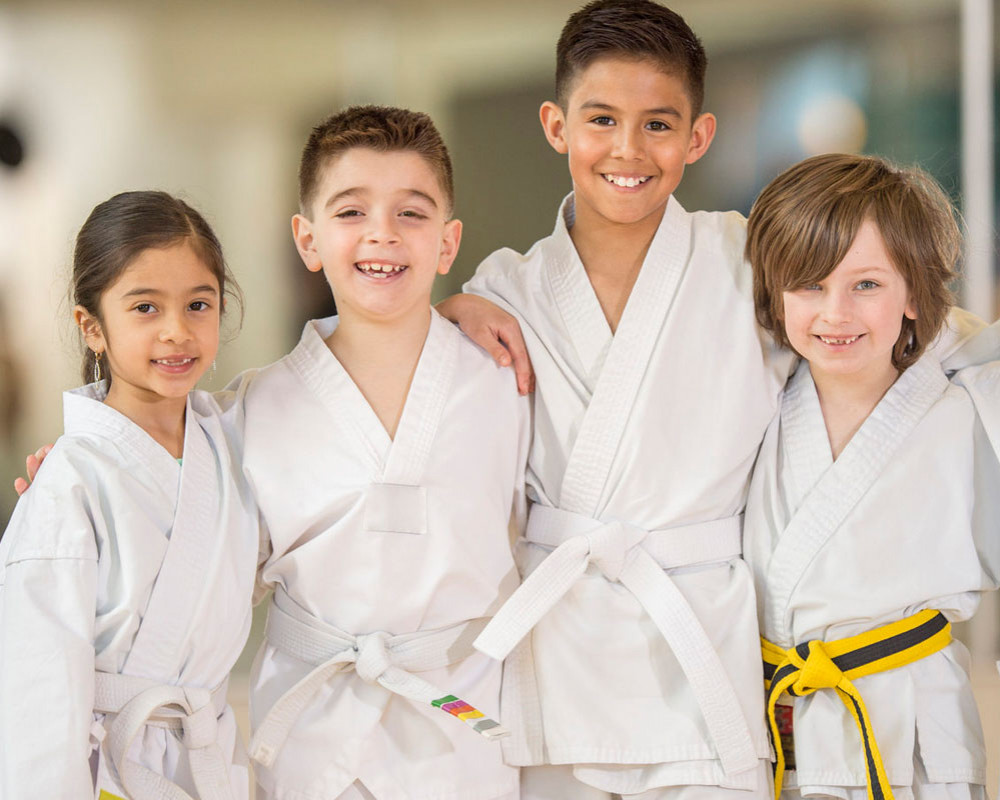
Karate Kids Make Very Smart Looking
2024-05-29 - karateIntroduction
Have you ever noticed how karate kids always seem so sharp
and put-together? There's something undeniably impressive about the way they
carry themselves. But what is it about karate that makes kids not only fit and
strong but also mentally agile and confident? Let's dive into the world of
karate and discover why it's such a fantastic activity for children.
The Benefits of Karate for Children
Karate isn't just about learning to kick and punch; it's a
comprehensive activity that offers numerous benefits to young practitioners.
These benefits span physical, mental, and emotional development, making it an
ideal choice for growing children.
Physical Benefits
Karate is an excellent form of physical exercise. It
improves cardiovascular health, strengthens muscles, enhances flexibility, and
promotes overall fitness. Kids who practice karate are often more physically
active and less likely to suffer from obesity.
Mental and Emotional Benefits
Beyond the physical perks, karate also fosters mental
strength and emotional resilience. It teaches kids to stay calm under pressure,
manage stress, and build a strong sense of self-worth. These lessons are
invaluable as they navigate the challenges of childhood and adolescence.
Karate and Physical Fitness
Strength and Conditioning
Karate training involves a variety of exercises that build
strength and endurance. From punching and kicking drills to bodyweight
exercises like push-ups and squats, kids develop their muscles and improve
their overall physical condition.
Flexibility and Coordination
Practicing karate requires precise movements and stretches
that enhance flexibility and coordination. These skills are crucial not only in
martial arts but in daily activities and other sports as well.
Building Discipline and Focus
The Role of Karate in Developing Self-Discipline
One of the core principles of karate is discipline. Kids
learn to follow instructions, adhere to a training schedule, and practice
regularly. This discipline often extends to other areas of their lives, such as
schoolwork and household chores.
Enhancing Concentration through Karate
Karate requires intense focus and concentration. Whether
it's learning a new kata (a sequence of movements) or sparring with a partner,
kids must stay mentally sharp. This improved concentration can translate into
better performance in academic settings.
Boosting Confidence and Self-Esteem
Overcoming Challenges
Karate presents various challenges, from mastering
techniques to participating in competitions. Overcoming these obstacles boosts
kids' confidence and teaches them that perseverance pays off.
Achieving Goals and Earning Belts
The belt system in karate provides clear goals for kids to
strive towards. Achieving a new belt level is a tangible reward for their hard
work and dedication, further enhancing their self-esteem.
Learning Respect and Responsibility
The Importance of Respect in Martial Arts
Respect is a fundamental value in karate. Kids learn to
respect their instructors, peers, and themselves. This respect often extends
beyond the dojo, influencing their interactions with others.
Encouraging Responsibility in Young Karate Practitioners
Karate teaches kids to take responsibility for their
actions, both in training and in life. They learn the importance of being
reliable, punctual, and accountable for their progress.
Improving Social Skills
Teamwork and Friendship
Karate classes provide a social environment where kids can
make friends and work as a team. They learn to support each other, celebrate
successes, and offer encouragement during challenging times.
Conflict Resolution and Empathy
Through sparring and partner drills, kids develop a sense of
empathy and learn conflict resolution skills. They understand the importance of
fair play and respecting others' boundaries.
Karate and Academic Performance
The Correlation between Physical Activity and Cognitive
Function
Research shows a strong link between physical activity and
cognitive function. Kids who engage in regular physical exercise, like karate,
tend to perform better academically. The increased blood flow and oxygen to the
brain during physical activity boost mental clarity and focus.
How Karate Enhances Learning Abilities
Karate requires memorization of forms, sequences, and
techniques, which enhances memory and learning skills. This mental exercise can
improve their ability to absorb and retain information in school.
Developing a Growth Mindset
Embracing Failures as Learning Opportunities
Karate teaches kids that failure is a part of the learning
process. They learn to view mistakes as opportunities for growth rather than
setbacks, fostering a growth mindset that benefits all areas of their lives.
The Karate Journey: From Beginner to Black Belt
The journey to black belt is long and challenging, but it
teaches kids the value of perseverance and continuous improvement. Each step
along the way is an opportunity to learn and grow.
Parental Perspectives
Testimonials from Parents of Karate Kids
Many parents have witnessed the positive impact of karate on
their children. They report improvements in behavior, academic performance, and
overall happiness.
How Parents Can Support Their Karate Kids
Parents can support their karate kids by encouraging practice,
attending classes and events, and fostering a positive attitude towards the
sport.
Choosing the Right Karate Dojo
What to Look for in a Karate School
When selecting a dojo, parents should look for experienced
instructors, a clean and safe environment, and a curriculum that emphasizes
both physical and mental development.
Questions to Ask Potential Instructors
It's essential to ask about the instructor's qualifications,
teaching philosophy, and how they handle different learning styles and
challenges.
Common Misconceptions about Kids in Karate
Debunking Myths about Aggression
A common misconception is that karate promotes aggression.
In reality, karate teaches self-control and respect, reducing the likelihood of
aggressive behavior.
Understanding the True Nature of Martial Arts
Karate is not about fighting but about self-improvement and
discipline. It provides a structured environment for kids to develop positive
traits.
Success Stories of Karate Kids
Inspirational Stories from Young Karate Practitioners
There are countless stories of kids who have transformed
their lives through karate, overcoming personal challenges and achieving
remarkable goals.
How Karate Transformed Their Lives
These stories highlight the profound impact that karate can
have on a child's physical, mental, and emotional well-being.
Integrating Karate into Daily Life
Practicing Karate outside the Dojo
Kids can practice karate at home through various exercises
and drills, reinforcing what they learn in class and staying active.
Balancing Karate with Other Activities
It's important for kids to have a balanced schedule that
includes karate, academics, and other extracurricular activities. Time
management skills are crucial.
Conclusion
Karate offers a wealth of benefits for children, from
physical fitness to mental resilience. It's a holistic activity that helps kids
become smart, confident, and well-rounded individuals. If you're considering an
activity for your child, karate might just be the perfect choice.






















































